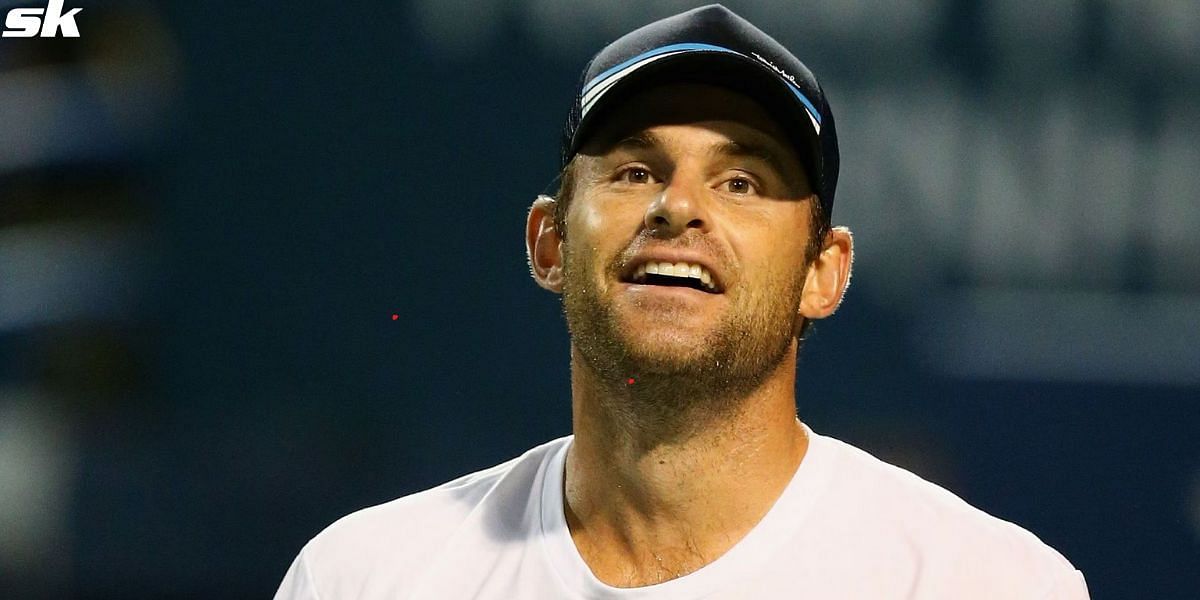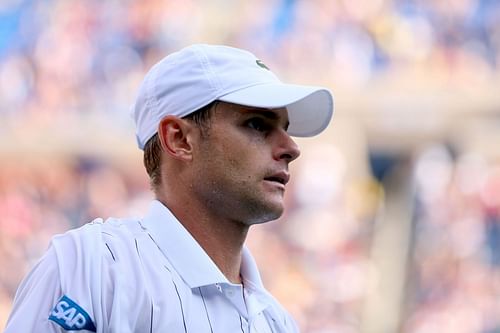
Pretending it’s all same because people need support is a stretch: Andy Roddick responds to criticism over not supporting lower-ranked players
Andy Roddick has responded to the criticism directed at him by fellow American Tennys Sandgren for not supporting lower-ranked players, defending himself and doubling down on previous statements about the same.
After Roddick had come out in an interview saying that players ranked outside the top 800 in the ATP Tour should not be considered "professionals," former World No. 41 Sandgren called out the 40-year-old for "bashing" his colleagues.
Sandgren also felt that the former World No. 1 was "throwing stones" at lower-ranked players, who he believes are part of the pro tour. Responding on social media to those comments, Roddick highlighted that he was adopting a similar classification as baseball in the US, where there are minor leagues and major leagues.
In Andy Roddick's opinion, there is just as much difference between players in the top 100 and those ranked 700 spots below them. He doesn't think it's fair to pretend there's no such talent gap just because the latter group needs support.
"How do you define tour? Or is it all just tour? Should we stop referring to it as the major leagues in baseball? Is there a difference between ABA and NBA?
"I’ll call it whatever you’d prefer, but pretending it’s all the same because people need to be supported is a stretch for me. I respect what you’re saying. Just feel like there’s a line somewhere and for this conversation needed definition," Roddick tweeted.
Sandgren responded, saying that a minor league baseball player is still considered a pro and that Roddick's argument was a disservice to a lot of good tennis players who are unlucky to be ranked lower.
"A minor league baseball player is still a pro. If you draw the line at your bank account being in the black at the end of the year, you’re prob only talking about 300 players. That leaves out some really really good tennis players."
"Is an nfl practice squad guy with a contract more of a pro than a tennis player ranked 400 and losing money? This conversation has a lot of nuance tbh," Sandgren responded."
Roddick, though, pointed out that since only his wins and losses on the ATP Tour go on his pro career record, his argument was not far off the mark:
"My career record as a pro only includes wins and losses from the ATP Tour. I didn’t make up that counting system. Just the way it is. In my mind, that’s what the conversation was.
"I think a really good amateur could win a game off of someone w a single ATP point. And frankly, that would’ve been a very boring conversation."
When Sandgren asked him if he still considered that only people who made a living off tennis should be considered a pro, Roddick answered in the affirmative, remarking that he simply went by the standard that's followed in every other profession.
"By your standard, I would think anyone in Babe Ruth’s era wasn’t a pro….. that’s nonsensical, but you know that. I wouldn’t apply my thought on difference between good amateur and pro equally across hundreds of ranking spots equally. That’s foolish."
"And on the rest of earth, a profession is generally defined by making a living. Had to draw line for conversation somewhere. You can disagree w where I drew it," Roddick said.
"I see things differently now than I did 10 years ago, and hope that will be the same 10 years from now" - Andy Roddick

Interestingly, Andy Roddick admitted that his argument would not extend to the ATP Tour in the 1990s, as people generally made money at their job today than they did 40 years ago.
Asserting that he saw things differently now than he did ten years ago and that he preferred to keep doing it, Roddick made it clear that he was not talking about players from the past in the discussion.
"I think it’s lazy to apply someone’s opinion on anything regarding payments/macroeconomics backwards almost 40 years and make it an apples to apples comparison."
"I see things differently now than I did 10 years ago, and hope that will be the same 10 years from now. I understand that more people get paid more money for things now than they did 35 years ago. That wasn’t the discussion."